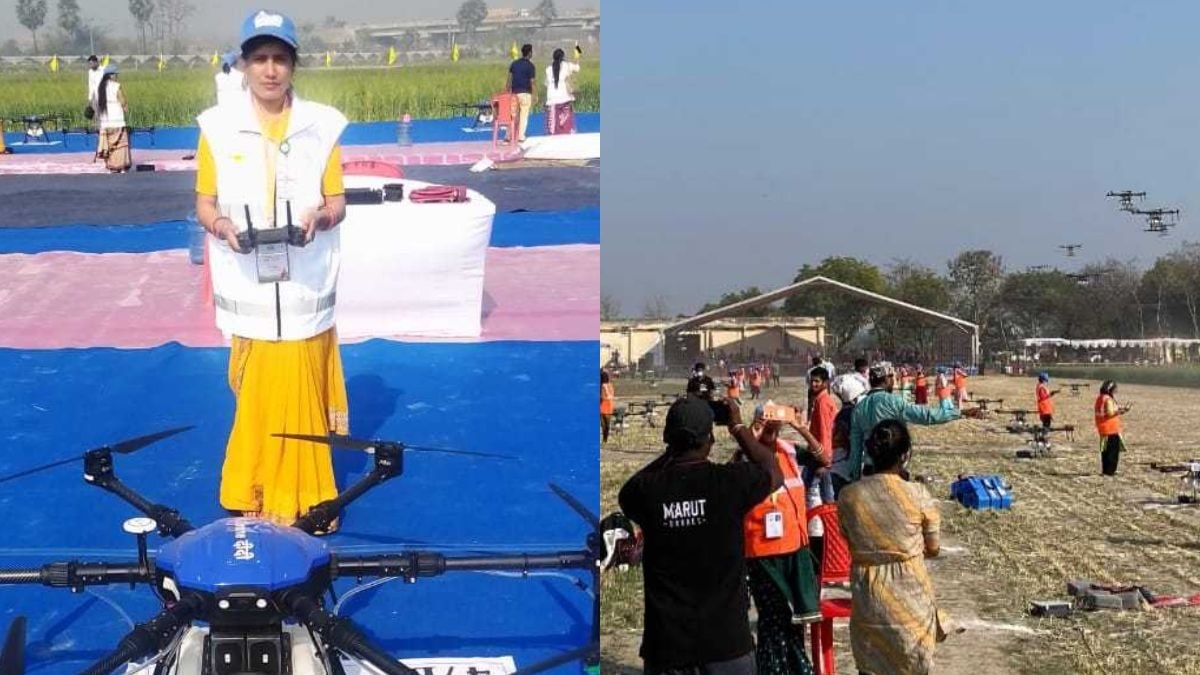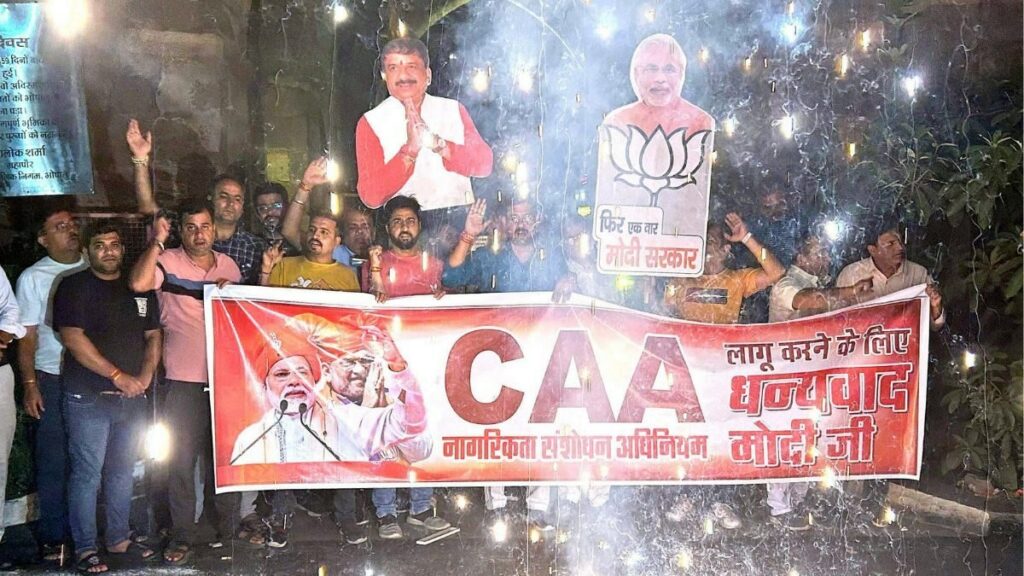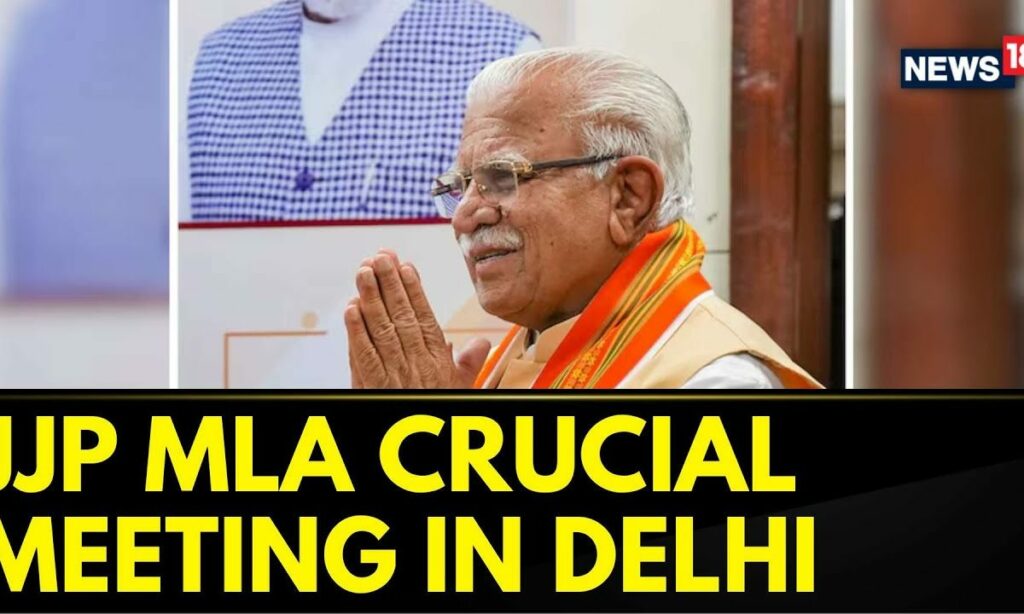
Devki Rajput and others like her displayed their drone-flying skills at a grand ‘Sashakt Nari, Viksit Bharat’ event at Bihar’s Motihari on March 11. (Image: News18/File)
Devki Rajput from UP’s Mainpuri district underwent a rigorous 17-day training programme, and now wants to focus on her new career and hopes she can earn a livelihood from it
Roll, pitch, yaw, throttle, rudder trim, landing gear – drone flying and its basic terminology was alien to Devki Rajput from Mainpuri district in Uttar Pradesh. But, that was until she volunteered for a special drone training programme and became the state’s first “drone didi”.
Devki and others like her displayed their drone-flying skills at a grand ‘Sashakt Nari, Viksit Bharat’ event at Bihar’s Motihari on Monday (March 11). Prime Minister Narendra Modi virtually attended from the Indian Agricultural Research Institute in Pusa, where he was connected to 10 different locations and watched ‘Namo Drone Didis’ demonstrate their skills.
Devki told News18 that before entering the rigorous 17-day training, conducted by India’s leading drone manufacturer Marut Drones, she had never seen a drone. “At first sight, the drone seemed quite scary and an alien thing to me. Handling it seemed too technical and impossible to me. But, the training cleared my doubts and made me well-versed with its functioning,” she said.
She has dropped her plans of becoming a school teacher and wants to excel in the field of drone-flying under the ‘Namo Drone Didi’ initiative.
What is the ‘Namo Drone Didi’ scheme?
Under this scheme, rural women are trained to become drone pilots for agricultural purposes. The initiative aims at enhancing economic empowerment and financial autonomy among women, especially in rural areas. It aims to equip 15,000 women-led self-help groups (SHG) with agricultural drones to assist in tasks such as crop monitoring, spraying fertilisers and sowing seeds.
Devki is hopeful that drone flying will surely help her in earning a livelihood. “Generally, spraying fertilisers or sowing seeds is a cumbersome task. A farmer has to pay heavily to the labour to carry out these tasks, which is a time-consuming process. With the help of the drone, it can all be done in minutes and, that too, for cheaper,” she said.
On an average, she said, a drone is designed to carry a load of around 10 litres of liquid fertilisers in one go and takes only five minutes to cover an acre of land. “Also, spraying fertiliser through drones will be of great benefit to farmers as the first thing is that it will cut human involvement and, thus, make the entire process less hazardous. Second, it is a cost effective way to sprinkle fertiliser or sow seeds and, third, it will ensure even sprinkling while avoiding spillage that often leads to soil pollution,” she added, highlighting the benefits.
Devki further said she is happy to be part of the programme. Other than her, there are more than 80 women from UP trained for the task by Marut Drones.
“Marut Drones has leveraged drone technology to ensure women empowerment. We are proud to have supported female drone pilots from rural pockets in tackling the obstacles in male-dominated sectors such as agriculture and aerospace. Out of 1,000 Namo drone didis across India, we have empowered at least 90 from Uttar Pradesh… it is indeed the beginning of a new India,” said Prem Kumar Vislawath, CEO and founder of Marut Drones.











